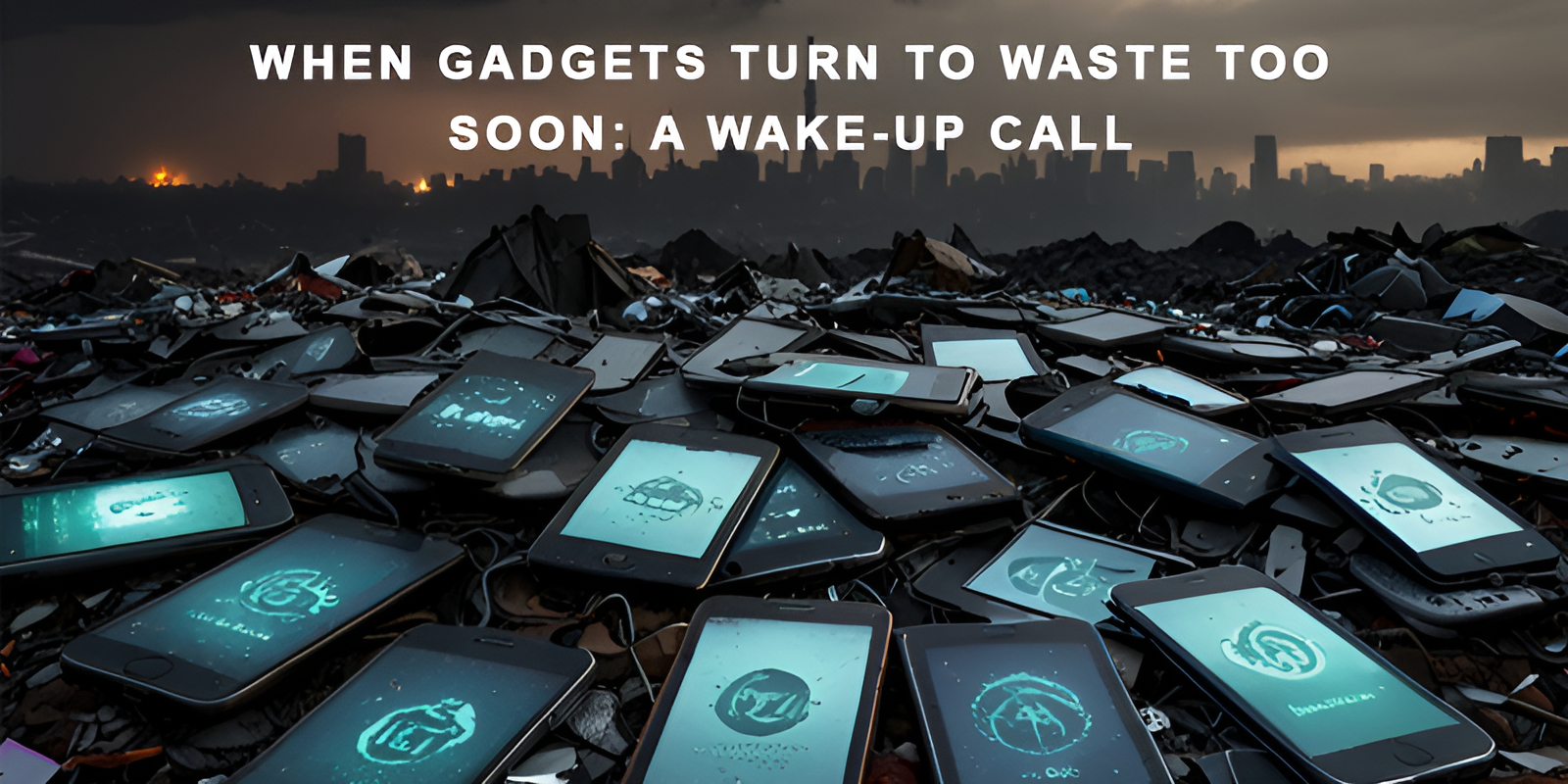Introduction
In a world increasingly driven by technology, when gadgets turn to waste too soon becomes a topic of growing concern. Every year, millions of smartphones, laptops, smartwatches, and other electronics are discarded well before their actual end-of-life. This practice not only burdens the environment but also highlights a deep flaw in how technology is manufactured, marketed, and consumed. The problem when gadgets turn to waste too soon speaks to the need for a more sustainable mindset among consumers, manufacturers, and policymakers. It's a wake-up call for everyone to rethink their tech habits, as when gadgets turn to waste too soon also means greater electronic pollution and lost resources.
The Lifecycle of Electronics: Shorter Than Ever
While consumer-facing electronics are available with significantly reduced lifecycle times, there is much focus today, especially when gadgets turn to waste too soon. Manufacturers indulged in launching devices every few months, in turn pushing previous generations into obsolescence. When gadgets turn into waste too quickly, piles of e-waste start accumulating in recycling centers that are not equipped to handle the volume. Planned obsolescence and designs that cannot be repaired only speed the process at which when gadgets turn into waste too soon becomes the norm. The wasteful and the unsustainable require intervention.
-
When gadgets turn to waste too soon, older devices are quickly discarded.
-
Planned obsolescence limits repair options and shortens gadget lifespan.
-
Non-repairable designs make replacing gadgets easier than fixing them.
-
E-waste increases rapidly as consumers chase the latest tech trends.
Environmental Impact: Hidden Waste Problem
Gadgets, when turned to waste too soon, need not be environmentally friendly because they easily emit toxic substances into the environment. As a city with renowned cleanliness and an apolitical reputation, is silently decadently accumulating all forms of e-waste that dangerous soil and water will infect by when gadgets turn to waste too soon. Materials like lead, mercury, and cadmium mix with the ecosystem when gadgets turn to waste too soon. Not only are phones part of this problem, as discarded tablets, TVs, and gaming consoles further aggravate the situation, but also Dubai has landfills where even luxury is not sufficient to mask the reality of when gadgets turn to waste too soon.
-
Toxic leaks from e-waste pollute soil and water.
-
Health risks arise from exposure to harmful chemicals.
-
Landfills overflow with rapidly discarded electronics.
-
Ecosystems suffer due to improper disposal practices.
-
Carbon emissions rise as devices are replaced too quickly.
What Consumers Can Do Differently
Changing consumer behavior is the main ingredient in a world where gadgets are wasting away too soon. The awareness of recycling or the donations that can be made continues to lack penetration. Tech-savvy residents are going to extend the life of their devices with protective kit, appropriate timely repairs, and less impulse upgrades. When these gadgets turn into waste too quickly, it's an indelible reflection, not only of corporate influence, but also individual choices. Those citizens who have limited access to local e-waste programs and refurbished technology shops can see some improvements.
-
Use gadgets longer with proper care and maintenance.
-
Repair instead of replacing when possible.
-
Choose durable devices with long-term support.
-
Donate or resell old electronics in Dubai.
-
Recycle through official e-waste programs.
Conclusion: A Call to Action
when gadgets turn to waste too soon, it’s a multi-faceted problem that harms the environment, strains economies, and encourages reckless consumerism, the cost to the planet and community is irreversible. It’s time for consumers, corporations, and policymakers to act responsibly and collectively. From supporting repairable tech to demanding e-waste policies, every action counts. Let us not wait until when gadgets turn to waste too soon becomes an irreversible crisis. Change begins with awareness and awareness begins now.
Frequently Asked Questions
Q.1. Why do gadgets turn to waste too soon?
Many consumers upgrade devices frequently, and brands often stop updates or make repairs difficult.
Q.2. What is the environmental impact of e-waste?
E-waste contains harmful chemicals that can pollute soil and water when not properly recycled.
Q.3. How can consumers reduce gadget waste?
By repairing devices, donating old electronics, and purchasing longer-lasting models.
Q.4. What role do manufacturers play in gadget waste?
They often use planned obsolescence strategies, releasing devices with limited support.
Q.5. Are there e-waste recycling programs?
Yes, several public and private initiatives collect old electronics for responsible disposal.






















